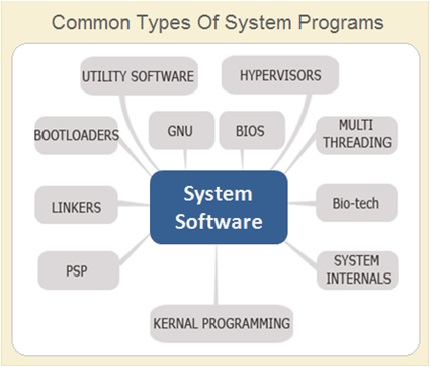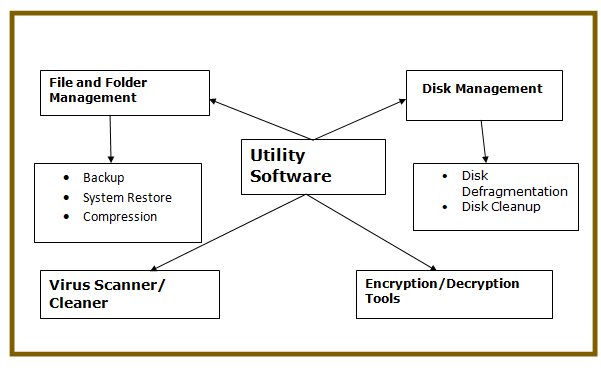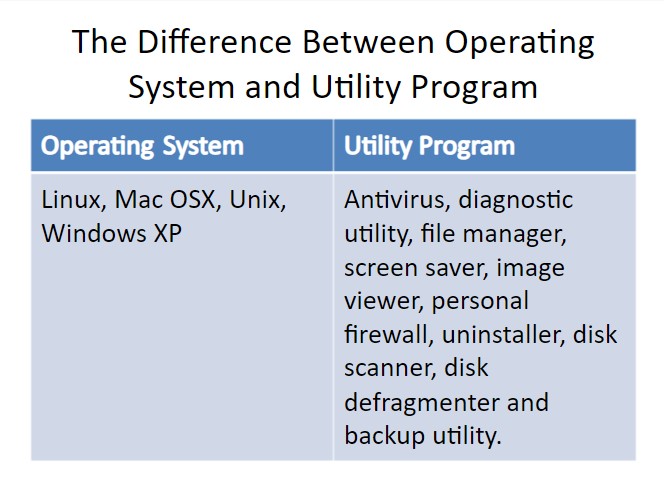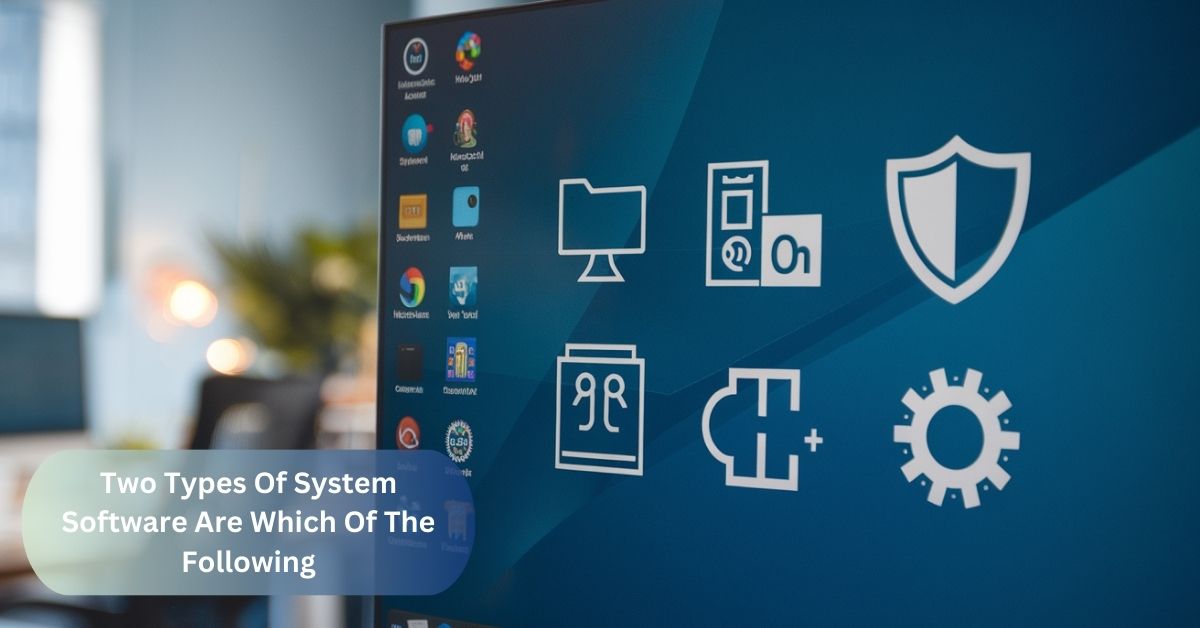In my experience, operating systems like Windows make it easy to manage my computer’s tasks, while utility software like antivirus programs keeps my files safe from threats. Both types of system software work together to enhance my overall computing experience.
Operating systems and utility software are the two categories of system software. While utility software concentrates on maintaining the system’s smooth and effective operation, operating systems regulate how hardware and software interact.
Introduction Of Two Types Of System Software Are Which Of The Following
The two types of system software are which of the following: operating systems and utility software. Operating systems are essential because they manage all the hardware and software resources on a computer, allowing users to interact with their devices seamlessly. The second type, utility software, complements operating systems by providing tools that help maintain and optimize system performance.
Understanding that the two types of system software are which of the following can help users make informed choices about their computing needs. Together, these two types of system software are which of the following and play a crucial role in ensuring a smooth and secure computing experience.
What Is System Software?
System software is a specific kind of software that controls and maintains computer hardware, enabling several components to function as a unit. Among these are operating systems, which operate as users’ primary interface and make it simple for them to communicate with their gadgets.

System software also includes utility applications, which are intended to maximise efficiency and preserve the system’s integrity. System software is a vital part of any computing environment, as it makes sure that everything in a computer functions properly and effectively.
Operating Systems
1. What is an Operating System?
The main piece of software that manages a computer’s hardware and facilitates the operation of programs is called an operating system (OS). Its user-friendly design makes it simple for users to engage with their devices and handle tasks.
2. Functions of Operating Systems:
- Resource Management: The operating system allocates and coordinates the computer’s resources, like CPU and memory, to ensure efficient performance.
- User Interface: It provides a way for users to interact with the computer, whether through graphical icons or command lines, making navigation intuitive.
- File Handling: The OS organizes and manages files on storage devices, allowing users to create, delete, and retrieve files easily.
- Process Control: It oversees running applications, managing their execution and prioritizing tasks to ensure everything operates smoothly.
- Security Features: The operating system protects data and resources by enforcing security protocols, managing user permissions, and safeguarding against unauthorized access.
Utility Software
1. What is Utility Software?
Utility software consists of applications that manage duties like virus prevention, file organisation, and system cleaning to keep your computer operating efficiently. These apps enhance functionality and facilitate efficient device maintenance for users.
2. Functions of Utility Software:

- System Optimization: Utility software helps improve system performance by removing unnecessary files and optimizing resource usage.
- Data Security: It provides protection against malware and viruses, keeping sensitive information safe and secure.
- Backup Solutions: Utility programs enable users to create backups of important files, ensuring that data can be recovered in case of loss or damage.
- Disk Management: These tools assist in organizing and managing disk space, including tasks like defragmentation and file compression.
- Performance Monitoring: Utility software can track system performance metrics, helping users identify issues and maintain optimal functioning.
Importance Of System Software
1. Enhancing User Experience:
Enhancing user experience means making interactions with a computer more enjoyable and efficient. By streamlining tasks and providing intuitive interfaces, software helps users accomplish their goals with ease and satisfaction.
2. Ensuring System Security:
Ensuring system security involves using software tools that protect your computer from threats like viruses and malware. Regular updates and scans help maintain a safe environment, keeping your data and personal information secure.
Differences Between Operating Systems And Utility Software
Operating systems and utility software serve different purposes in the realm of computing. Operating systems are the foundation that manages hardware and software interactions, providing the necessary environment for applications to run.

In contrast, utility software focuses on specific tasks that enhance the computer’s performance and maintenance. Understanding these differences helps users appreciate how each type contributes to overall system functionality.
1. Key Differences:
- Purpose: Operating systems provide a platform for applications and manage hardware, while utility software enhances and maintains system performance.
- Essential Nature: Operating systems are essential for the computer to function, whereas utility software is optional and used for optimization.
- Examples: Common operating systems include Windows, macOS, and Linux; utility software includes antivirus programs, disk cleanup tools, and backup applications.
- User Interaction: Users interact with operating systems regularly, whereas utility software is often used as needed for maintenance tasks.
- Resource Management: Operating systems allocate system resources, while utility software helps optimize those resources for better performance.
FAQ’s
1. What are some common examples of operating systems?
Common operating systems include Windows, macOS, Linux, and Android, each serving different devices and user needs.
2. What types of utility software should I use?
You might consider using antivirus software, disk management tools, backup solutions, and system optimization programs to keep your computer running smoothly.
3. How often should my operating system be updated?
It’s best to update your operating system regularly, especially when new updates or security patches are released, to ensure optimal performance and protection.
4. Is utility software necessary for all computers?
While not strictly necessary, utility software can significantly improve system performance and security, making it a valuable addition for most users.
5. How do I choose the right utility software?
When selecting utility software, look for reputable options with good reviews, features that meet your needs, and compatibility with your operating system.
Conclusion:
The two types of system software are which of the following: operating systems and utility software. Operating systems provide the essential framework for running applications and managing hardware, while utility software enhances system performance and security.
Together, they create a reliable computing environment that empowers users to work efficiently and securely. Understanding these two types helps users make informed choices about their software needs, ensuring a smoother and more productive experience.

